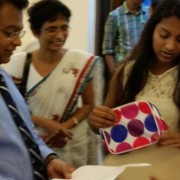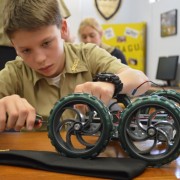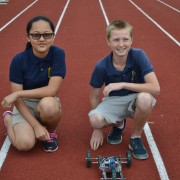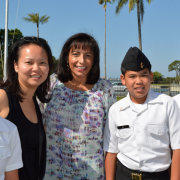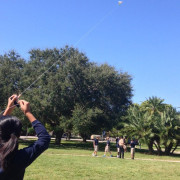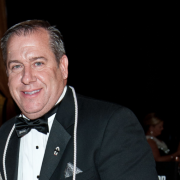Salt marsh planting enriches students schoolwide for 18th year
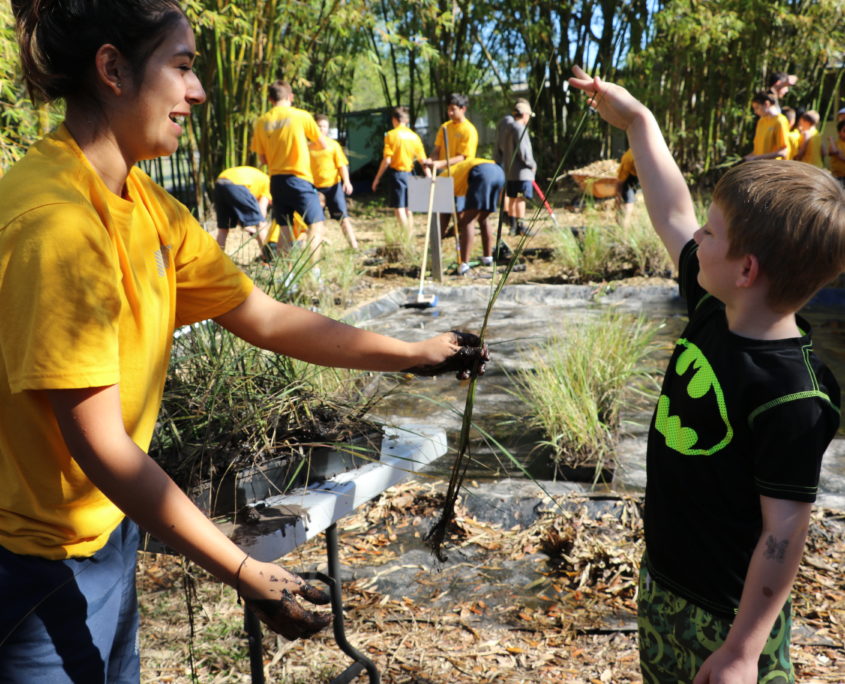
On Friday, February 16th, the entire school participated in what is becoming one of our students’ favorite days of the year: Salt Marsh Planting! Lower and Upper School students, faculty, and staff came out to help plant springs in the school’s on-campus salt marsh nursery. It may be messy but they love using their hands to help our earth and support our local habitats.
Tampa Bay Watch has been running the Bay Grasses in Classes program since 1993. The program aims to provide students with hands-on experience in habitat restoration, while promoting science education and the value of maintaining a healthy environment. Over the past 18 years, the program on Farragut’s campus has grown in size and influence, with Farragut playing a major role with Tampa Bay Watch, which has its headquarters in nearby Tierra Verde.

Science Department Head and Biology and Marine Science teacher Sari Deitche, who was recently awarded the FAWQC’s E2 Fund grant, has been involved in Farragut’s program from its infancy.
“Admiral Farragut Academy has been a part of the program for longer than I have been teaching here,” Mrs. Dietche said. “As a matter of fact, when I worked at Tampa BayWatch, Admiral Farragut Academy was one of the schools I helped bring into the BGIC Program. That is how I learned about Farragut.”

This year, we transplanted half of our school’s salt marsh grasses (about 2,000 grasses) at a local restoration site in Pinellas County on December 6th. The remaining salt marsh plugs (about 10 plants) were separated into “sprigs,” which are 2 to 3 plants, and replanted into our school nursery. The entire school, from PreK to 12th grade, helped to replant the sprigs to fill the nursery for another growing season. The sprigs will grow and reproduce to produce new plugs.

Currently, we have 54 trays with about 40 to 50 planting cells growing in the nursery. Students will help monitor the growth, add salt, test pH, salinity and help maintain proper plant health throughout the year. The salt marsh grasses are grown on our campus until ready for a restoration project where the plants are then transplanted by our students into local sites in Tampa Bay. A portion of the plants are recycled on campus and grown for another growing season until ready to be transplanted the next season.

Salt marsh planting is a fun yearly activity that enriches the entire school. Science teachers in Lower and Upper school teach about wetlands and salt marsh habitats, about the importance of water quality and the importance and positive effects of the salt marsh grasses.


